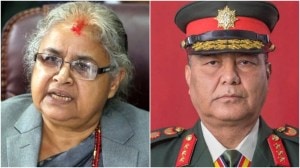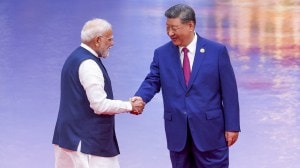Delhi HC grants disability award, pension to IAF cadets who developed seizures while in service
The Delhi High Court took into consideration the fact that the medical board’s report also indicates that the seizure's cause could be sleep deprivation and other such factors that the IAF candidate underwent during training.
 For the two, the court recorded that they would be entitled to an ex-gratia award and disability award. (File Photo)
For the two, the court recorded that they would be entitled to an ex-gratia award and disability award. (File Photo)The Delhi High Court recently directed the grant of disability award as well as payment of arrears of pension to two flight cadets while granting the benefit of doubt in assuming that their disability was attributable to service in the Indian Air Force (IAF).
A bench of Justices C Hari Shankar and Om Prakash Shukla was dealing with three cadets’ challenge to a medical board’s opinion in petitions filed in 2022, which stated that their disabilities was not attributable to service. However, the Delhi HC ruled otherwise in the case of two of these cadets — Rohit Choudhary and Anupam Bhandari.
Choudhary had joined as a flight cadet in 2013 in the Indian Air Force, before which he was declared fit medically. In July 2013, he suffered a seizure, and in September that year, the Invalid Medical Board assessed his disability at 20 per cent for life but opined that it was “not connected with service”.
Through his lawyer, Advocate Pallavi Awasthi, Choudhary argued that given the fact that he was not detected as suffering from any such seizures before commencement of training, it had to be presumed that they were attributable to the rigour, stress, and strain of training.
The Delhi High Court took into consideration the argument and the fact that the medical board’s report also indicates that the cause of the seizure could be sleep deprivation and other such factors that the candidate underwent during training.
The bench reasoned in its order of August 28, “In these circumstances, the onus was on the respondents to identify any other cause for the seizures which the petitioner suffered. No other such cause has been identified.”
The court also took into consideration that in the entries during the medical board proceedings, to the query as to whether the disease was present at the time when the candidate joined service, the board’s opinion read as “could be”.
“Though there was also an option to answer “Yes or No”, no such categorical answer has been provided. ‘Could be, clearly, is neither here nor there… In these circumstances, we are of the opinion that the (petitioner is eligible for) benefit of doubt, given the position of law,” the bench ruled.
The court came to a similar conclusion for another cadet as well.
For the two, the court recorded that they would be entitled to an ex-gratia award and disability award, as well as arrears of pension from 2019, that is, to a period of three years before the filing of the petition.
However, in the case of a third cadet — Nidhi Parihar — the court refused to grant a similar relief because she “had a history of episodes of seizure during childhood”.







